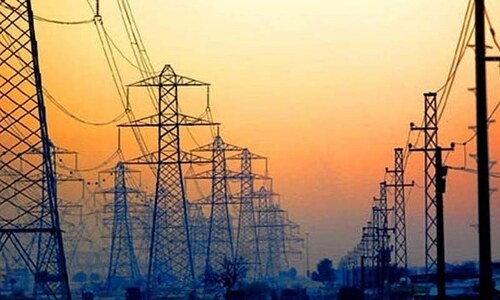ISLAMABAD: In a twist of events, the K-Electric has sought about Rs3.40 per unit increase in its monthly fuel price adjustment (FPA) for electricity it sold to consumers in January to generate Rs3.73bn in additional revenue in April.
The KE’s request for higher FPA came days after the National Electric Power Regulatory Authority (Nepra) notified a negative FPA of Rs2.5953/kWh for December 2021 had an impact of Rs3.038 billion to be passed on to consumers in March bills.
In its petition filed before the regulator demanded charging an additional cost of Rs3.406 per unit from its consumers under monthly fuel cost adjustment (FCA) for January. Once approved, the K-Electric will be able to collect Rs3.727bn from its consumers in their monthly bill of April.
On the other hand, KE also sought a reduction of 30-paisa per unit in its quarterly tariff adjustment (QTA) for the second quarter of October-December 2021. The regulator would hold a public hearing on the subject on March 1 to determine if the evidence provided by the power utility justified these adjustments.
The regulator will discuss whether the monthly and quarterly fuel price variation is justified and the company has followed the economic merit order (EMO) while giving despatch to its power plants and power purchases from external sources.
The KE claimed that its request for an increase in monthly FCA for January was on the basis of a request of the Central Power Purchasing Agency’s Rs6.10 per unit increase in FCA for January. Moreover, installment of Gas Infrastructure Development Cess (GIDC) arrears amounting to Rs762 million per month was being billed by SSGC as per the Supreme Court order.
However, the National Electric Power Regulatory Authority (Nepra) in its FCA decision for June 2021 had stated that “considering the fact that K-Electric has obtained a stay order from the Sindh High Court in the matter, decided not to allow any amount on account of GIDC till final decision by the court”. Accordingly, GIDC for January will be claimed as per the final decision of the court.
Under the tariff mechanism, changes in fuel cost are passed on to consumers only on monthly basis through an automatic mechanism while quarterly tariff adjustments on account of variation in the power purchase price, capacity charges, variable operation and maintenance costs, use of system charges and including the impact of transmission and distribution losses are built in the base tariff by the federal government.
Published in Dawn, February 23rd, 2022













































